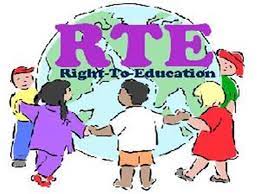Right Of Children To Free And Compulsory Education Act, 2009

The Delhi High Court recently disposed of a plea seeking direction to the Bar Council of India (BCI) to make the Right of Children to Free and Compulsory Education Act, 2009 (RTE Act) a compulsory subject in all law schools.
- The Constitution (Eighty-sixth Amendment) Act, 2002 inserted Article 21-A in the Constitution of India to provide free and compulsory education of all children in the age group of six to fourteen years as a Fundamental Right.
- RTE Act is an Act of the Parliament of India enacted on 4 August 2009 as envisaged under Article 21-A.
- Main Features of the RTE Act:
- Free and compulsory education to all children of India in the 6 to 14 age group.
- It clarifies that ‘compulsory education’ means the obligation of the appropriate government to provide free elementary education and ensure compulsory admission, attendance, and completion of elementary education to every child in the six to fourteen age group.
- No child shall be held back, expelled, or required to pass a board examination until the completion of elementary education.
- It makes provisions for a non-admitted child to be admitted to an age-appropriate class.
- It specifies the duties and responsibilities of appropriate Governments, local authorities, and parents in providing free and compulsory education and sharing of financial and other responsibilities between the Central and State Governments.
- It lays down the norms and standards relating inter alia to Pupil Teacher Ratios (PTRs), buildings and infrastructure, school-working days, and teacher-working hours.
- It provides for the appointment of appropriately trained teachers, i.e., teachers with the requisite entry and academic qualifications.
- It prohibits physical punishment and mental harassment, screening procedures for admission of children, capitation fee, private tuition by teachers, and running of schools without recognition.
- It provides for the development of a curriculum in consonance with the values enshrined in the Constitution.




